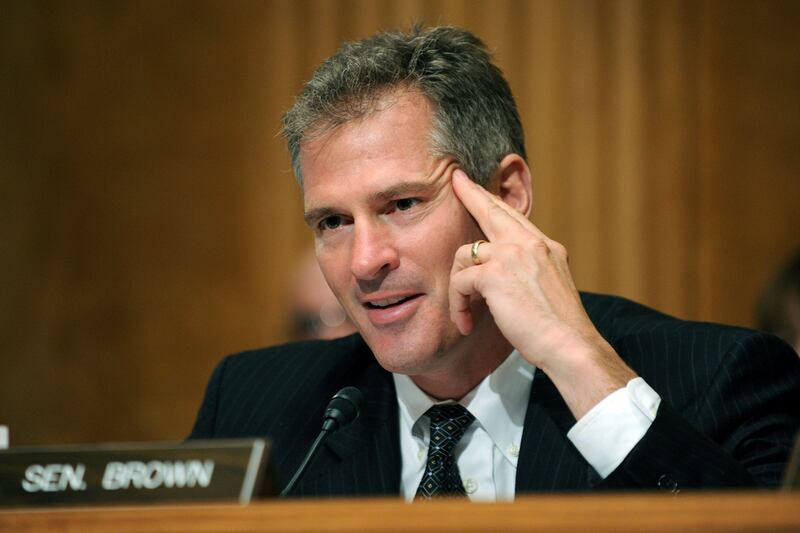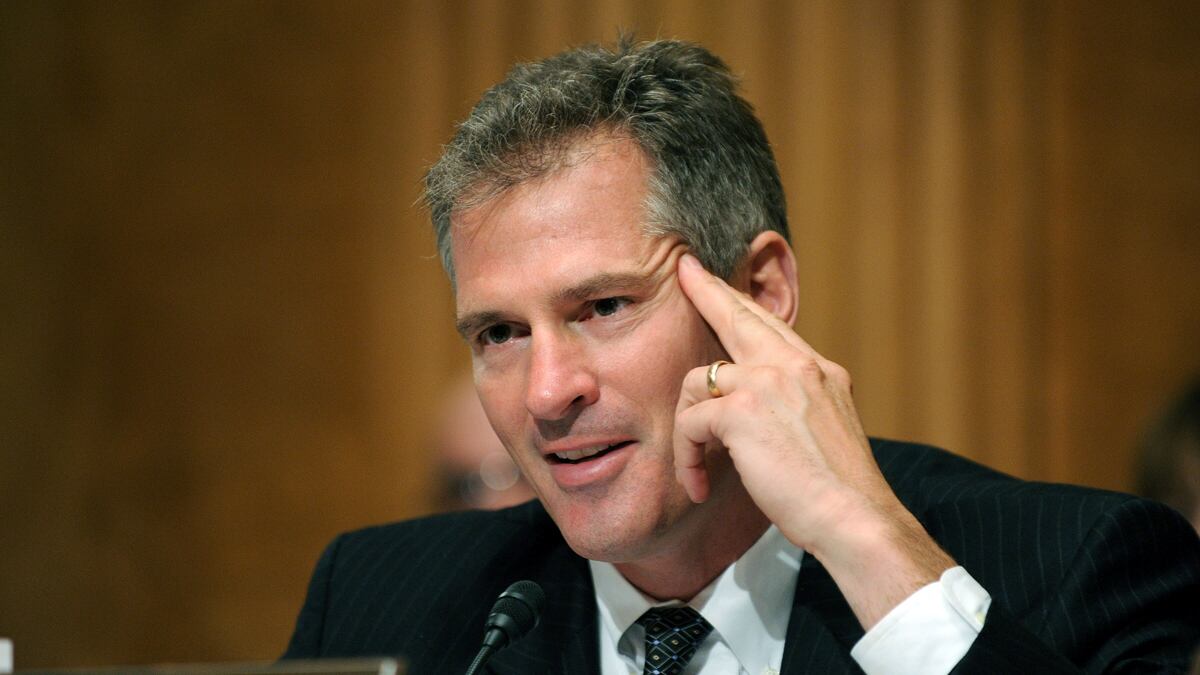Should members of Congress be able to use their insider knowledge of legislative issues to benefit financially? That’s the question lawmakers asked Thursday to a panel of banking and ethics experts before the Senate Governmental Affairs Committee on Capitol Hill.
The hearing was called by Republican Sen. Scott Brown of Massachusetts in response to reports by Newsweek and 60 Minutes, as well as a book by conservative author Peter Schweitzer, that highlighted cases of alleged impropriety by lawmakers who use secret government information to pad their pockets.
“As members of Congress, we have access to information that the public does not—classified briefings, closed conference reports, and personal conversations with government officials,” Brown said at the hearing. “All of these sources can give us nonpublic information that may have a significant value if traded upon.”
Sen. Joe Lieberman, the panel’s chairman, also lamented the lack of preventive measures.
“It will surprise most people to learn that there is no explicit prohibition in our laws against insider trading by anyone, including members of Congress,” Lieberman said.
Some lawmakers try to limit the appearance of congressional information affecting their personal finances. Sen. John Kerry, who, with his wife, is worth more than $180 million, has put most of his personal stock holdings in a blind trust, a financial tool that prevents the stock holder from making specific trading decisions. Presidents Obama, as well as George W. Bush, have also used blind trusts to prevent their jobs from influencing their portfolios.

The idea of limiting lawmakers’ personal trading has gained little traction in both chambers. Rep. Louise Slaughter, a Democrat from New York, has tried to push one measure—the Stop Trading on Congressional Knowledge (STOCK) Act—since 2006 but had never been able to attract support from more than a handful of colleagues. Since the news reports, 127 co-sponsors have signed on. Even TSA agents at the airport have asked her about the legislation, she has said.
With new attention from recent reporting, momentum has been building in both chambers to pass a bill making the practice a felony. But questions remain over what the actual legislation might include. Despite widespread opposition to insider trading in Congress, there’s widespread confusion and disagreement over how to specifically define insider trading, and how to fairly enforce it.
“There are substantial ambiguities in the judge-made law on insider trading that would make it difficult to enforce the existing prohibition,” says John Coffee, a law professor at Columbia University.
Newsweek and the Daily Beast’s investigations turned up other examples of lawmakers allegedly growing their portfolios with help from their positions. Spencer Bauchus, the top Republican on the House Financial Services Committee, quickly doubled an investment just a few days after sitting in a closed briefing about the movement of the markets. Nancy Pelosi, the former speaker and currently the House’s top Democrat, also benefited from a lucrative public offering from Visa in 2008.
Spokespeople for all of the members cited in the Schweitzer book and the new reports denied any impropriety, and in some cases argued that financial benefits their bosses enjoyed were entirely coincidental.
But Melanie Sloan, director of the watchdog group Citizens for Responsibility and Ethics in Washington, preferred to let several numbers speak for themselves. Sixty-six percent of senators and 41 percent of House members have a net worth of more than $1 million, she pointed out.
“Whether or not it’s accurate, there is a widespread public belief that members of Congress are using their positions to feather their own nests,” Sloan said. “They come in middle income and walk out rich.”






